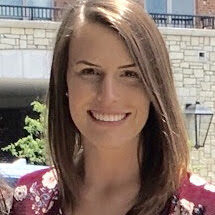About ACE!
Kendra Clark
Senior Research Associate
I recently earned my Ph.D. from University of Colorado Boulder where my research was funded by an NSF Graduate Research Fellowship. During graduate school I worked as a research assistant for numerous projects including the LoneStar Project—an NIJ funded study examining gangs and reentry experiences. I enjoy all aspects of research; however, data collection and analysis are where I thrive the most.
Degrees
- Ph.D. in Sociology from CU Boulder
- M.A. in Sociology from CU Boulder
- B.S. in Sociology and Psychology from Baker University
Research Interests
- Incarceration, reentry, and recidivism
- Quantitative methodologies
- Cultures and subcultures
- Gangs
- Justice-involved women, families, and children
Current Projects
- Evaluation of Stepping up Efforts to Improve MH Services and Justice Utilization
- Justice Community Opioid Innovation Network (JCOIN)
- Hildago County Emerging Adults Strategy (HCEAS)
- Developmental Reentry for Emerging Adult Management (DREAM)
What is so fascinating about one research project you are working on at ACE!
I love the multidisciplinary, mixed methods, multi-agency collaboration involved in so many of the project at ACE!—especially the Evaluation of Stepping Up. It has been fascinating to work directly with practitioners to answer the questions they are most interested in exploring and receive feedback on how they will use our findings.
How do you think working on ACE! projects will make you a better researcher?
The research at ACE! is highly collaborative with endless possibilities to learn from others. The experiences and perspectives of those I work with encourage me to think in new ways and pursue new ideas.
If you had to give advice to an agency about Evidence-Based practices, what would that be.
My advice to agencies would be to remain open to changing the status quo and to remember that the rate at which research on EBPs expands is largely dependent on agencies willingness to collaborate with researchers. The more we learn in terms of Evidence-Based practices, the more efficiently agencies will be able to provide their services.

